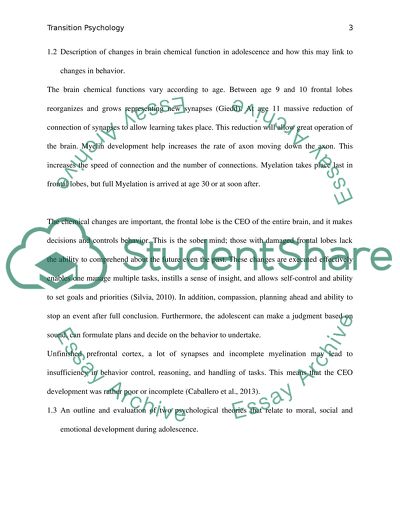Cite this document
(“Transition Psychology Essay Example | Topics and Well Written Essays - 1000 words”, n.d.)
Retrieved from https://studentshare.org/psychology/1698055-transition-psychology
Retrieved from https://studentshare.org/psychology/1698055-transition-psychology
(Transition Psychology Essay Example | Topics and Well Written Essays - 1000 Words)
https://studentshare.org/psychology/1698055-transition-psychology.
https://studentshare.org/psychology/1698055-transition-psychology.
“Transition Psychology Essay Example | Topics and Well Written Essays - 1000 Words”, n.d. https://studentshare.org/psychology/1698055-transition-psychology.


